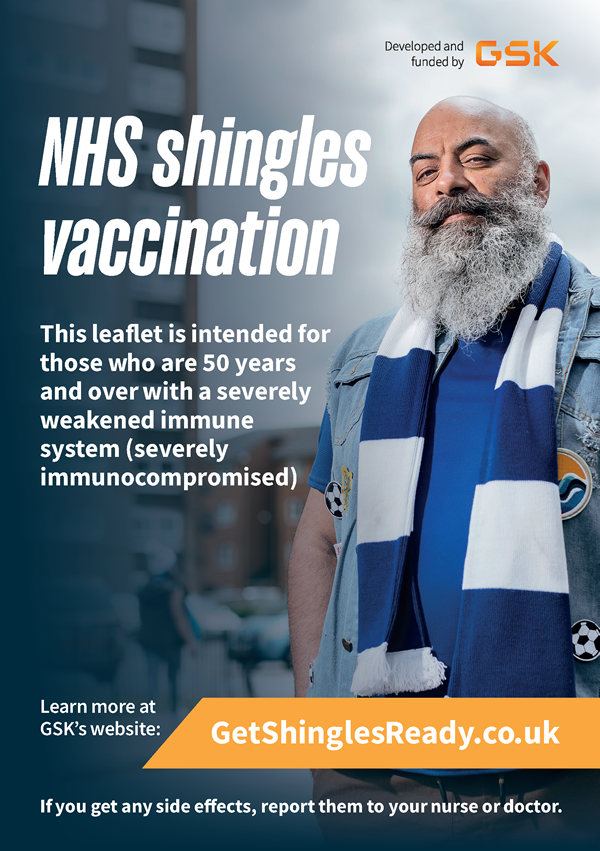

Individuals with a
severely
weakened
immune system
(Severely immunocompromised)
What does it mean to have a severely weakened immune system?
If you have a severely weakened immune system, also known as being severely immunocompromised, your immune system is not working properly. There may be a number of reasons for this. It may be due to a medical condition or the medication used to treat a medical condition, for example.
The impact of these on your immune system function will vary: some may cause a mildly weakened immune system but others, a severely weakened immune system. Patients who have a severely weakened immune system are at a higher risk of shingles and it's complications compared to those who do not.
This is why shingles vaccination is recommended at an earlier age group for these patients.
Which patients with a severely weakened immune system are eligible for a free shingles vaccination on the National Immunisation Programme?
Patients 50 years old or older with a severely weakened immune system (severely immunocompromised) are eligible for a free NHS shingles vaccination on the National Immunisation Programme. Patients aged 18-49 receiving a stem cell transplant may also be eligible.
Which patient groups are likely to be considered as having a severely weakened immune system?
As a general guide, patients with the following conditions are likely to be considered as having a severely weakened immune system:
- Patients with some blood cancers eg specific types of leukaemia, lymphoma, myeloma
- Solid organ transplant recipients who are receiving (or recently received) immunosuppressant medication
- Patients who are receiving (or recently received) immunosuppressive chemotherapy or radiotherapy for any type of cancer
- Patients with some cellular or combined immune deficiencies
- Patients with autoimmune diseases who are receiving (or recently received) targeted therapies or biologic immune modulators
- Patients with HIV/AIDS with a CD4 count below 200cells/μl
- Recipients of stem cell transplant in last 24 months (or more than 24 months ago if ongoing immunosuppression or Graft versus host disease)
- Patients with chronic immune mediated inflammatory disease receiving (or who have received) immunosuppressive therapy who are also receiving moderate to high dose steroids, certain oral immune modulating drugs or specific combination therapies
- Patients who have received high dose steroids for more than a week in last month for any reason
This is not a comprehensive list, please speak to your Specialist, nurse or GP Surgery for more information about your individual eligibility.

GSK Digital leaflet about shingles and UK Shingles National Immunisation Programme for members of the public with a severely weakened immune system.
This item is developed and funded by GSK.
This item is suitable for digital viewing only and is not suitable for printing.
The Shingles National Immunisation Programme is a NHS vaccination programme to help protect against shingles.
Find out more and check eligibilityFurther resources
A selection of GSK resources which contain information about the National Immunisation Programme eligibility can be found here.
More information
If you’re still unsure about your eligibility or you want to learn more about shingles and the Shingles National Immunisation Programme, speak to your nurse or GP surgery.
Reporting of side effects
If you get any side effects following vaccination, talk to your doctor, nurse, or pharmacist. This includes any possible side effects not listed in the package leaflet.
You can also report side effects directly via the Yellow Card Scheme Website: yellowcard.mhra.gov.uk.
By reporting side effects, you can help provide more information on the safety of medicines.
References
- DH Green Book Ch 28a. Shingles. 2024.
